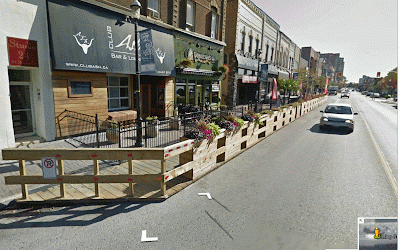Is it good? Yes.
Worth seeing in a theatre? Absolutely.
Am I familiar with the 80s Arnie movie? Yep.
Does it compare? Not really—this is its own thing.
Have I read the book? Not yet.
Edgar Wright’s adaptation is tight. Exposition lands cleanly, and the pacing never drags. Glenn Powell is perfectly cast as the relatable everyman, Lee Pace is straight-up kick-ass, and Josh Brolin brings a charismatic charm to a very likable “bad guy.”
PMG’s 80s version took huge swings—because it was the 80s. Wright’s take is far more grounded, which somehow makes it even eerier because it gets so many details uncomfortably right. Will this version hold up in 20 or 30 years? Hard to say—but the future feels close enough that it might.
I got shades of Children of Men and Andor in the bleak, bureaucratic hellscape of the co-ops. What really struck me was how much of the movie happens in broad daylight. I’ve walked grey, empty big-city streets in the fall, and it was easy to imagine this world bleeding into ours.
The “future tech” is refreshingly understated. Nothing glossy or over-designed—more knobs and tactile hardware, with the occasional SpaceX-style sleekness sprinkled in. Nothing felt sensationalized.
What did stand out was the frictionless TikTok-style social media layer. It’s disturbingly natural—everyone casually participating in tracking and identifying runners. It’s 1984 meets influencer culture: a surveillance state turned up to 11, not through force but through engagement and normalization.
On the surface, it’s a fast-paced action romp. Beneath that, it’s a sharp commentary on the near future—one we’re inching toward if we’re not paying attention.
I’m looking forward to reading Stephen King’s novel, written over 40 years ago, to see how his nightmare stacks up against today’s world. And I’ll definitely be rewatching Wright’s version to catch the little nods and Easter eggs I know I missed.



